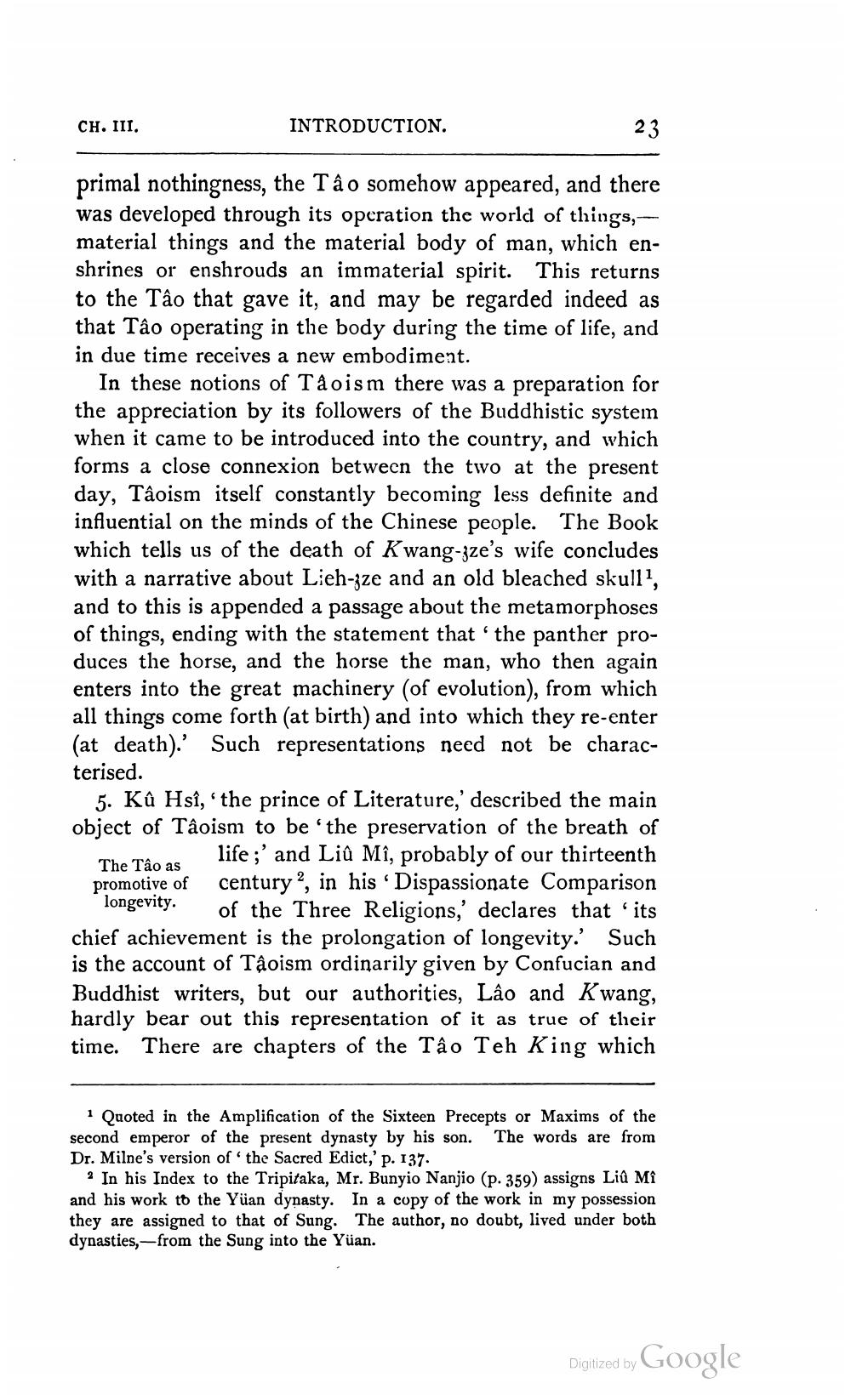________________
CH. III.
INTRODUCTION.
23
primal nothingness, the Tâo somehow appeared, and there was developed through its operation the world of things,material things and the material body of man, which enshrines or enshrouds an immaterial spirit. This returns to the Tâo that gave it, and may be regarded indeed as that Tâo operating in the body during the time of life, and in due time receives a new embodiment.
In these notions of Tåoism there was a preparation for the appreciation by its followers of the Buddhistic system when it came to be introduced into the country, and which forms a close connexion between the two at the present day, Tâoism itself constantly becoming less definite and influential on the minds of the Chinese people. The Book which tells us of the death of Kwang-zze's wife concludes with a narrative about Lieh-zze and an old bleached skull}, and to this is appended a passage about the metamorphoses of things, ending with the statement that 'the panther produces the horse, and the horse the man, who then again enters into the great machinery (of evolution), from which all things come forth (at birth) and into which they re-enter (at death). Such representations need not be characterised.
5. Kû Hsî, the prince of Literature,' described the main object of Taoism to be the preservation of the breath of
& life;' and Liû Mî, probably of our thirteenth The Tão as promotive of century, in his Dispassionate Comparison
longevity. of the Three Religions,' declares that 'its chief achievement is the prolongation of longevity. Such is the account of Taoism ordinarily given by Confucian and Buddhist writers, but our authorities, Lâo and Kwang, hardly bear out this representation of it as true of their time. There are chapters of the Tâo Teh King which
1 Quoted in the Amplification of the Sixteen Precepts or Maxims of the second emperor of the present dynasty by his son. The words are from Dr. Milne's version of the Sacred Edict,' p. 137.
? In his Index to the Tripitaka, Mr. Bunyio Nanjio (p. 359) assigns Liû Mî and his work to the Yuan dynasty. In a copy of the work in my possession they are assigned to that of Sung. The author, no doubt, lived under both dynasties,- from the Sung into the Yuan.
Digitized by Google




